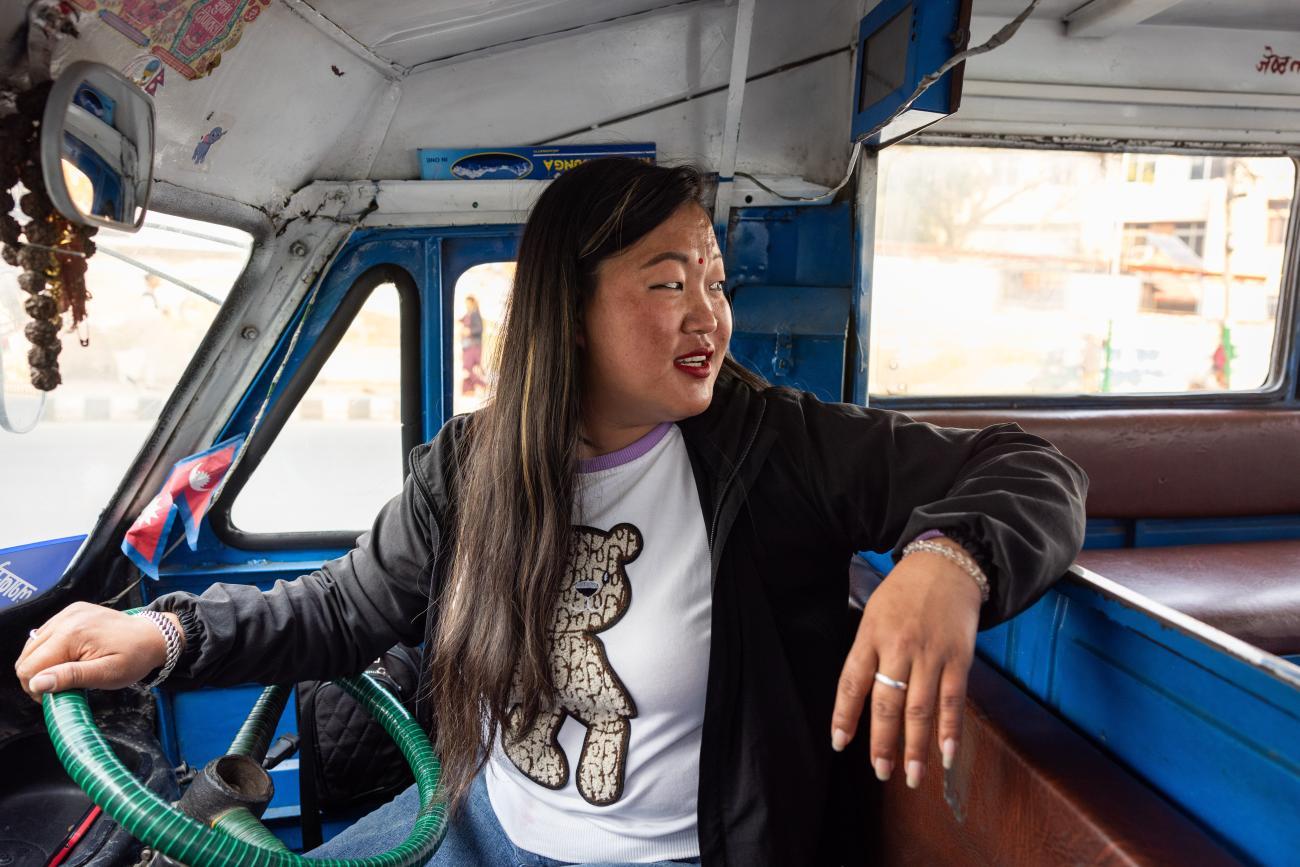
Sonika Manandhar and Tiffany Tong, the founders of Aloi, a Nepal-based company that helps entrepreneurs access financing. (Image: Lauren DeCicca for ESCAP)
Women in low-income countries are more interested in starting businesses and show more intention to do so, according to a report by the research consortium Global Entrepreneurship Monitor. These countries also have the highest startup rates for women, who tend to offer more innovative products and services than women in high-income regions. Despite this, women entrepreneurs often face greater challenges than men, such as barriers to accessing capital and developing the infrastructure needed to scale their businesses.
Founded in 2018 by the United Nations Economic and Social Commission for Asia and the Pacific (ESCAP) and Global Affairs Canada, the Catalyzing Women’s Entrepreneurship program aims to build women's economic power and reduce poverty in the Asia-Pacific region. Through this program, ESCAP addresses the challenges faced by women-led businesses.
Providing access to capital, business infrastructure and technology
To date, the program has supported more than 220,000 women entrepreneurs and secured over $111 million in capital. The support available to women entrepreneurs varies on the specific context of the six countries the program targets: Bangladesh, Cambodia, Fiji, Nepal, Samoa and Vietnam, Elena Mayer-Besting, the program management officer at ESCAP, said in an email.
The program offers a range of financial support options, from microloans to large-scale equity investments. It also provides short-term and long-term training, coaching, and networking opportunities in topics like information and communication technology, attracting foreign investments, and integrating climate adaptation and mitigation into business operations.
The women-founded financial tech company Aloi is one of 15 fintech and digital companies that received financing and technical support through the program. The platform makes financing accessible for informal micro-entrepreneurs in Nepal by digitally monitoring loans and repayments through cell phones, with no internet access required.
To boost her income, Sumita Rai trained as a Safa Tempo driver — a popular form of public transport in Kathmandu, Nepal — with the aspiration of owning her own Safa Tempo vehicle and business. Through Aloi, Rai secured a loan to buy the necessary battery for her own electric vehicle.
With this support, Rai earns more, provides for her son's education and drives a more sustainable vehicle. It allows her to make more trips and reduce her carbon footprint, compared to when she was employed driving a less efficient battery-powered vehicle owned by someone else.

"Addressing all of these [challenges] is important to ensure not only that women get the opportunities they deserve, but equally if we don’t deal with these topics now, we may even see a regression of women’s opportunities and a widening of gender inequality,” Mayer-Besting said.
Adjusting support to tackle challenges
Since the program’s inception, challenges and events like the pandemic and climate crisis required adjustments in supporting women entrepreneurs, Mayer-Besting said.
"The climate crisis is already shaping the day-to-day of many women entrepreneurs we work with, while we still hear investors saying, ‘We’d love to invest in women-led climate solutions, but we just can’t find any women,’” Mayer-Besting said.
To tackle these issues, ESCAP provided funding for local women's groups and organizations to help their members with climate challenges and adaptation strategies and established an accelerator to connect women-led climate tech companies with investors, she said.
Empowering women and adding trillions to the economy
“When women have an income [or] a higher income, their economic power changes," Mayer-Besting said. “They can make purchasing decisions. In many contexts, they experience lower rates of male violence … When these changes happen at an individual level, they change lives. When they happen at a larger scale, they change societies and create a better world for women and girls.”
Closing gender gaps in economic opportunities in Asia and Pacific regions will contribute and estimated $4.5 trillion to the region’s gross domestic product, according to research from the McKinsey Global Institute. Achieving this growth depends on three key factors: women’s participation in the workforce, promoting full time work, and boosting women's productivity by adding them more to industries with greater output.
“Every life we can change for the better is worth it,” Mayer-Besting said. “However, changes at the individual level can easily be ‘eaten up’ if the larger conditions, societal values, systems don’t truly let women thrive. That’s why we need programs that create sustainable solutions at scale.”

Rasha is a freelance writer with experience in communications, marketing, and program management. She is a Toronto Metropolitan University's School of Journalism graduate and has worked on various media and communication campaigns across both nonprofit and private sectors. Rasha is passionate about storytelling for impact, whether she focuses on social enterprise, transforming our food system or making the business world more inclusive.













